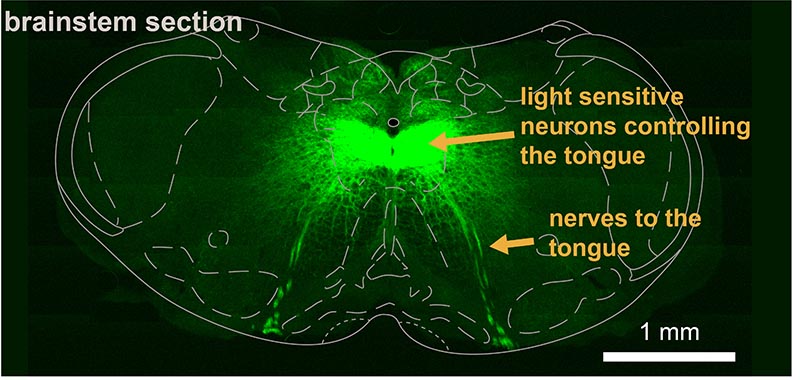August 21, 2022

An interdisciplinary research team at Mizzou is investigating a novel treatment to prevent tongue muscle degeneration and preserve swallowing function in patients suffering from ALS (amyotrophic lateral sclerosis).
Ilker Ozden, an assistant professor of biomedical, biological and chemical engineering, and Teresa Lever, an associate professor in the MU School of Medicine’s Otolaryngology-Head and Neck Surgery Department, have received funding from the National Institutes of Health (National Institute of Neurological Disorder and Stroke, NINDS) for a two-year R21 project.
ALS is a progressive neurodegenerative disease that kills motor neurons controlling the tongue, inevitably leading to tongue muscle weakness that impairs swallowing ability. Eventually, these patients are unable to eat or drink by mouth and require a feeding tube for survival. Ozden and Lever are exploring a potential new treatment to preserve swallowing function in ALS — first in a model of ALS that Dr. Lever has been studying for several years, and ultimately in human patients.
“We want to slow down the deterioration of the neural circuitry controlling the tongue so there are more surviving cells with stronger connections to the tongue muscles,” Ozden said.
Specifically, they are determining whether optogenetics could provide a minimally invasive targeted treatment for swallowing impairment in ALS.
Optogenetics is a way to control neural activity by making cells responsive to light. Ozden and Lever are using gene targeting methods to cause tongue muscle contractions when the neurons controlling the tongue are stimulated by light.
Lever compared it to physical exercise like walking, climbing stairs, and lifting weights.
“But how do you exercise your tongue?” she said. “There are currently no effective tongue exercises for people with ALS. We don’t want to put them through rigorous exercise because they’re going to fatigue, and that can cause them to choke when they swallow.”
Instead, Ozden and Lever are exploring how to use light to “tune” the tongue neural circuit to strengthen it without becoming fatigued.
They envision that their optogenetics treatment approach could be delivered through a mouth retainer in patients with ALS to strengthen the tongue and swallowing function, delaying the need for a feeding tube.
Success of this project relies on collaboration across multiple disciplines at MU. In addition to Ozden’s expertise in optogenetics and Lever’s clinical and basic science expertise in ALS and swallowing disorders, the project also includes a respiratory physiologist, Nicole Nichols, Biomedical Sciences, College of Veterinary Medicine, who studies mechanisms/treatments in ALS. They hope this foundational work will translate into a much larger collaborative study at MU that also includes ALS patients.
Join a biomedical engineering program that delivers real-world solutions. Learn more about biomedical, biological, and chemical engineering at Mizzou!